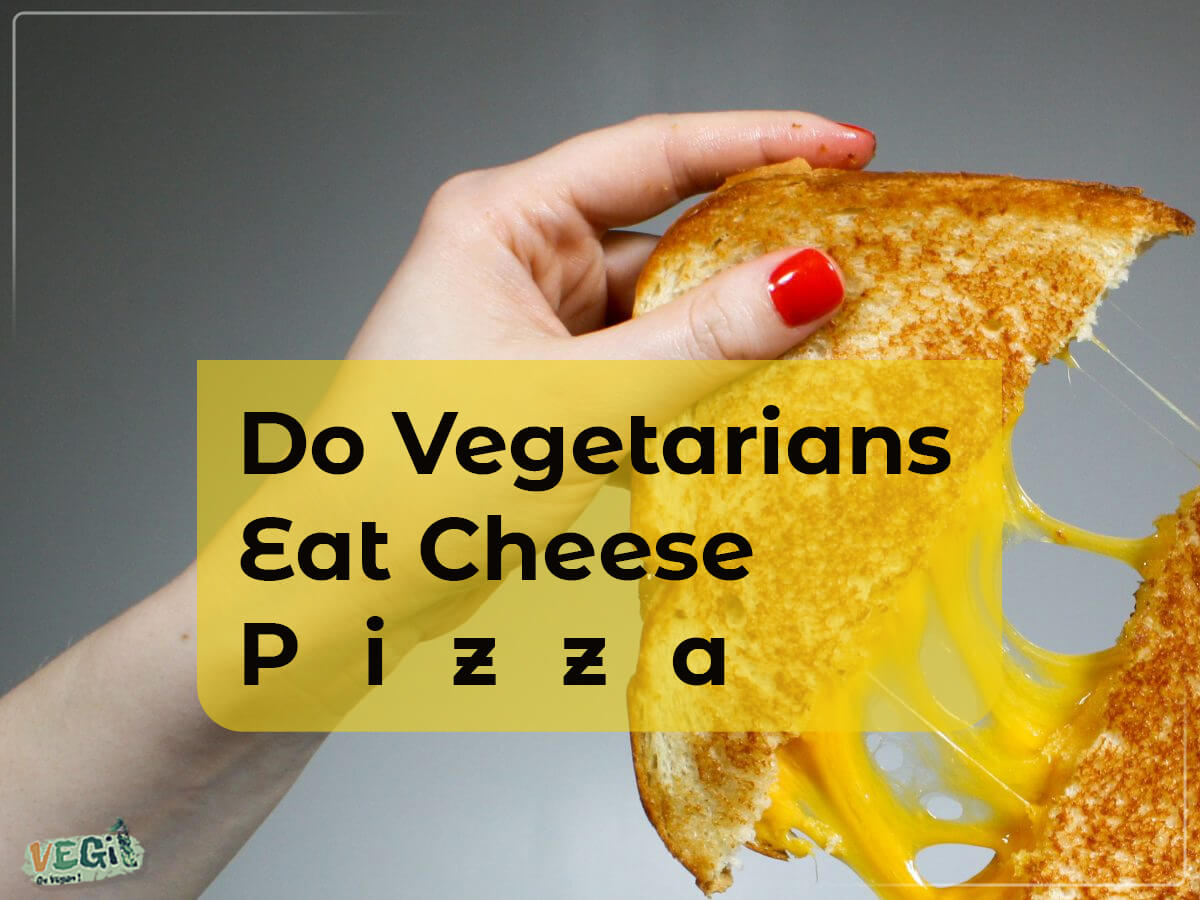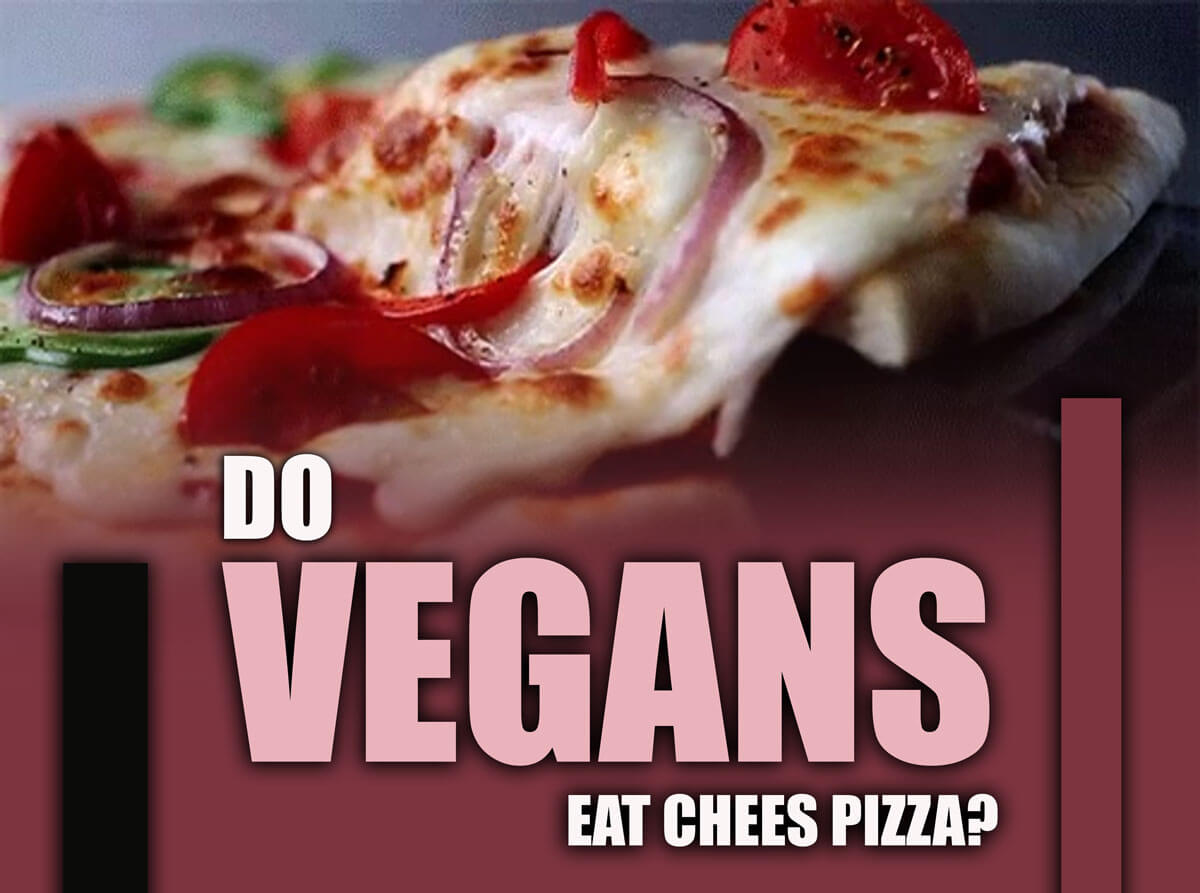Do Vegetarians Eat Cheese Pizza? (All You Should Know)
Discover the truth behind vegetarians and cheese consumption. Learn about vegetarian-friendly cheese options and unravel the mystery of which cheeses are truly vegetarian.

As a vegan mom, I’ve always been passionate about providing my family with nutritious and cruelty-free meals. One topic that often comes up in our household is the role of cheese in vegetarian diets. Many people assume vegetarians can enjoy cheesy pizza without concerns, but the reality is more complex. In this article, we’ll delve into the cheese pizza dilemma and explore why some vegetarians abstain from consuming it.
Through research and personal experience, I hope to shed some light on this topic and provide you with a better understanding of doing vegans eat cheese pizza without compromising their dietary choices.
. So, grab a seat, and let’s uncover the truth together!
In this article you will read:
Understanding Veganism: Exploring Different Types of Vegetarian Diets
I’m often asked whether or not vegans can eat cheese pizza. While it may seem simple, the answer is a bit more complicated than you think.
Before we delve into the pizza cheese controversy, it’s important to understand vegetarianism and its types.
Vegetarian diet, It’s a lifestyle choice that’s gaining popularity by the day. And why not? It’s good for the environment, our furry friends, and our health. Vegetarianism is a diet that abstains from consuming meat and, in some cases, animal by-products. However, there are different vegetarian diets, each with its dietary restrictions.
For instance, some vegetarians may still consume dairy products and eggs, while others may not.
While some vegetarians include dairy products and eggs in their meals (known as lacto-ovo vegetarians), others, like me, follow a strictly plant-based path, also known as a vegan diet. As vegans, we avoid consuming any animal-derived products, which means saying no to not just meat but also dairy, eggs, honey, and any other sneaky animal ingredients that might be hidden in our food.
Nothing that comes from an animal is allowed on our plate. But it’s not just about food. Veganism extends to all aspects of life, including clothing, cosmetics, and even entertainment. It’s a lifestyle choice that’s based on the belief that animals should not be exploited for human use.
Now, you might be wondering, “Why on Earth would someone choose to go vegan?” Well, there are a multitude of reasons that drive individuals to adopt this lifestyle. Let me walk you through some of the most common motivations:
-
Compassion for Animals
Many of us choose a vegan diet because we believe in treating all living beings with kindness and respect. We recognize that animals are sentient creatures capable of experiencing pain, joy, and love, just like us. By eliminating animal products from our plates, we strive to reduce the suffering and exploitation of animals in the food industry.
-
Environmental Concerns
The impact of animal agriculture on our planet is undeniable. Raising animals for food consumes vast amounts of resources, contributes to deforestation, and generates greenhouse gas emissions. Adopting a vegan diet is an eco-friendly choice that helps combat climate change, preserve biodiversity, and conserve precious water and land resources.
-
Health and Well-being
Many people embrace a vegan lifestyle for its potential health benefits. Numerous studies suggest that a well-planned vegan diet can provide all the essential nutrients our bodies need while reducing the risk of chronic diseases such as heart disease, diabetes, and certain types of cancer. By focusing on whole plant-based foods, we nourish our bodies with an abundance of vitamins, minerals, fiber, and antioxidants.
-
Ethical Considerations:
The food industry often involves practices that clash with our personal ethics. From factory farming to the use of growth hormones and antibiotics, there are concerns about the treatment of animals and the potential impact on human health. By choosing a vegan diet, we align our choices with our values, supporting a more compassionate and sustainable food system.
-
Taste and Culinary Exploration
Contrary to popular belief, being vegan doesn’t mean missing out on delicious food! In fact, the vegan culinary world is vast and exciting. Exploring plant-based ingredients and experimenting with new flavors and textures can be an incredibly rewarding experience. From vibrant salads to hearty stews, vegan cuisine offers a wide range of mouthwatering options that tickle our taste buds.

What you need to know about the pizza cheese production process
Pizza cheese is an essential ingredient that provides gooeyness and delicious flavor to any pizza.
I understand your curiosity about the production process of pizza cheese and why it’s not on our vegan-friendly list. So, let’s dive into it together and explore why vegans like us choose to steer clear of pizza cheese.
When it comes to pizza cheese, the production process usually starts with milk, typically sourced from cows. Now, you might wonder why milk isn’t vegan. Milk is an animal product, and as vegans, we avoid all animal-derived ingredients.
The milk is sourced from dairy cows specifically bred for milk production. These cows are often subjected to practices that go against the ethical principles of veganism. They are confined in cramped spaces, have their calves separated from them shortly after birth, and endure other less-than-ideal conditions.
Discover the truth about vegetarians and milk consumption. Unveil the benefits, concerns, and alternatives in this comprehensive guide. Can Vegetarians Enjoy Milk?
-
The use of animal-derived rennet in cheese-making
While the primary component of pizza cheese is cow’s milk, there are additional ingredients used in the cheese-making process that make it a no-go for us. One such ingredient is rennet. Traditional pizza cheese-making relies on animal rennet, which is obtained from the stomach lining of young calves. It’s used to curdle the milk and separate the solid curds from the liquid whey, an important step in cheese-making.
As vegans, we choose to avoid any products that involve animal exploitation, which includes the use of animal-derived ingredients like rennet.
Now, some might argue that not all cheeses contain rennet derived from animals, and that’s true.
The good news is that many vegan-friendly alternatives to animal-derived rennet are now available.
Microbial and vegetable-based rennet are becoming increasingly popular in the cheese-making industry. These alternatives, derived from bacteria or fungi, work just as well as animal-derived rennet without using animal products, but not all cheese manufacturers use them.
Some cheese products may still use animal-derived rennet, especially if made using traditional methods.
If you want to avoid animal products in your diet, it’s important to know how your cheese is made and choose vegan-friendly options.
I’m happy that there are many alternatives to animal-derived rennet, making it easier to enjoy cheese as a vegan.
If you need to learn about vegan-friendly rennet, use the following section!
Discover the truth behind vegetarianism and cheese. Uncover if vegetarians consume cheese and the vegetarian-friendly options available in the world of cheese. Do vegetarians eat cheese? Are all cheeses vegetarian?
-
Alternatives to animal rennet: microbial and vegetable-based rennet
Luckily, as I mentioned, there are now many alternatives to animal-derived rennet, including microbial and vegetable-based rennet.
Microbial rennet is made using bacteria or fungi capable of producing the same enzymes found in animal rennet.
Vegetable-based rennet is made using plant-based enzymes, such as those found in thistle, nettles, or fig leaves. These alternatives work just as well as animal-derived rennet without animal products.
Not only are these alternatives vegan-friendly, but they also offer other benefits.
For example, microbial and vegetable-based rennet is often more consistent in its results, leading to higher quality and more uniform cheese products.
Furthermore, they can be more cost-effective, making them an attractive option for cheese-makers.
When it comes to cheese pizza, many vegan-friendly cheese products use microbial or vegetable-based rennet.
So, whether you’re a strict vegan or a lacto-ovo-vegan, plenty of cheese options are available to suit your dietary restrictions. I will tell you some of the most well-known ones in the following.
-
The role of casein in the production of pizza cheese
Apart from the rennet issue, there are other ingredients that make pizza cheese not suitable for vegans. Some cheeses may contain casein, which is a milk protein. Casein helps give cheese its stretchy and melty texture, but since it’s derived from milk, it’s a no-go for us vegans.
Additionally, some cheeses may contain other additives like whey, lactose, or even animal-derived flavors. These ingredients are derived from milk or animals, which is why they make the cheese unsuitable for vegans.

What are the Vegans-friendly pizza chees brands?
If you’re a pizza lover, you might be wondering which cheese brands are vegan-friendly.
Lucky for you, there are many options available on the market that cater to your dietary restrictions.
-
Daiya
One of the most popular brands is Daiya, which offers a range of plant-based cheeses that are vegan-friendly and free from animal rennet.
Their cheese products are made using a combination of tapioca starch, pea protein, and coconut oil, which gives them a creamy texture and delicious taste.
They offer a variety of flavors, including mozzarella, cheddar, and pepper jack.
-
Follow Your Heart
Another great brand is Follow Your Heart, which offers vegan-friendly cheese alternatives using plant-based ingredients such as soy and pea protein.
Their cheese products are free from animal rennet and come in various flavors, including mozzarella and provolone.
-
Miyoko’s Creamery
For those who prefer organic options, Miyoko’s Creamery offers a range of artisanal plant-based cheeses made using organic nuts and natural ingredients.
Their cheese products are free from animal rennet, lactose, and gluten, making them a great option for those with dietary restrictions.
So next time you’re at the grocery store, don’t worry about sacrificing your love for pizza.
You can indulge in your favorite cheesy pizza guilt-free with many vegan-friendly cheese brands!
If you prefer to avoid buying vegan-friendly cheeses from companies, in the next section, you will learn how to make a vegan-friendly pizza cheese at home!

How to make a vegan-friendly pizza cheese at home?
Making a vegan-friendly pizza cheese at home is super easy and delicious. And the best part is you can customize the recipe to your liking.
The recipe for how to make it is provided below:
Ingredients
- 2 cups of cashews
- 1 cup of water
- 3 tablespoons of nutritional yeast
- 1 tablespoon of lemon juice
- 1 tablespoon of white miso paste
- 1 garlic clove
- 1 teaspoon of salt
- 1/4 teaspoon of black pepper
Instructions
- Soak the cashews in water overnight or for at least 4 hours.
- Drain the cashews and add them to a blender or food processor.
- Add the water, nutritional yeast, lemon juice, miso paste, garlic clove, salt, and black pepper to the blender.
- Blend the ingredients until smooth and creamy.
- Taste and adjust the seasoning to your liking.
- Use the cheese sauce to top your favorite pizza crust and toppings.
- Bake the pizza in the oven at 425°F for 10-12 minutes, or until the crust is golden brown and the cheese is melted and bubbly.
The debate over whether cheese pizza is vegan-friendly
One of the most common questions I get as a vegan is whether or not I can eat cheese pizza.
There’s a bit of debate over whether vegans eat cheese pizza.
Some people argue that since cheese is made from animal products (milk), it cannot be considered vegan.
On the other hand, many vegetarians consume dairy products and consider cheese pizza a viable option.
So, what’s the verdict? It depends on your dietary restrictions and beliefs.
If you’re a strict vegan, cheese pizza is a no-go since it contains dairy. However, cheese pizza may be a viable option if you’re a lacto-ovo-vegan (meaning you consume dairy and eggs).
It’s up to each vegan to decide whether or not cheese pizza is on the menu.
As for me, I’m a big fan of vegan cheese pizza and indulge in it regularly.
Remember to check the ingredients and choose vegan-friendly options if that’s important.
Personal experiences of vegans with cheese pizza
I’ve also had some amazing experiences with vegan-friendly cheese pizza.
I’ve tried different brands of plant-based cheese and even made my own at home.
The satisfaction of biting into a hot, cheesy pizza slice without guilt or worries is unmatched.
I’ve also noticed a growing trend of restaurants and pizzerias offering vegan-friendly cheese options.
This is a step in the right direction and makes it easier for vegans to enjoy their favorite food without complications.
Let’s recap
As vegans, we choose not to consume pizza cheese because it’s made from animal milk and often contains rennet or other animal-derived ingredients. We aim to avoid animal exploitation, and by abstaining from cheese, we stay true to our beliefs and values.
We choose to steer clear of it due to ethical, environmental, and health reasons. We believe in treating animals compassionately, reducing our ecological footprint, and nourishing our bodies with plant-based goodness.
However, the good news is that plenty of vegan pizza cheese alternatives are available! These plant-based cheeses are made from ingredients like nuts, soy, or even tapioca starch, and they can provide a tasty and melty topping for your vegan pizza. These alternatives are perfect for anyone looking to enjoy the delicious taste of pizza without compromising their ethics or dietary restrictions.
Ultimately, as vegans, we strive to make conscious choices that align with our values of compassion and ethical living. By opting for vegan-friendly alternatives, we can enjoy a delicious and cruelty-free pizza experience!
I hope this helps clarify why Vegans do not to eat pizza cheese and provides you with insights into our choices. Whether you’re a vegan, vegetarian, or simply curious about plant-based alternatives, I’d love to hear your thoughts and experiences. Leave a comment below and let’s engage in a conversation, share our tips and tricks, and support each other on this incredible vegan journey.
Now, go ahead and enjoy a scrumptious vegan cheese pizza, knowing that you’re making a positive impact with every bite. Bon appétit!










